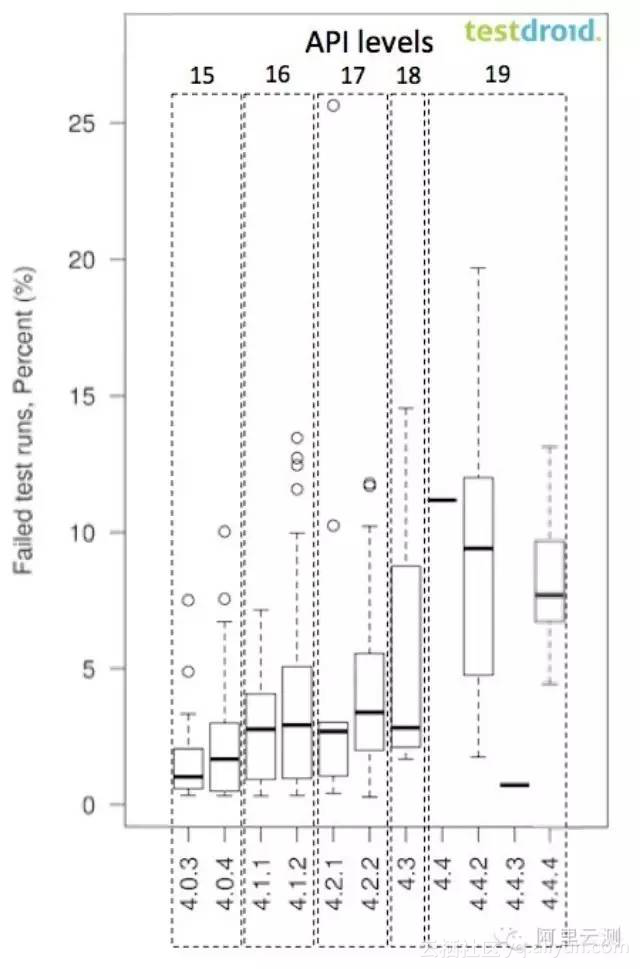
Android 版本更替,新的版本带来新的特性,新的方法。
新的方法带来许多便利,但无法在低版本系统上运行,如果兼容性处理不恰当,APP 在低版本系统上,运行时将会 crash。
本文以一个具体的例子说明如何在使用高 API level 的方法时处理好兼容性问题。
例子:根据给出路径,获取此路径所在分区的总空间大小。
在安卓中的文件存储使用参考中提到:
获取文件系统用量情况,在 API level 9 及其以上的系统,可直接调用 File 对象的相关方法,以下需自行计算
一般实现
就此需求而言,API level 9 及其以上,调用 File.getTotalSpace() 即可, 但是在 API level 8 以下系统 File 对象并不存在此方法。
如以下方法:
/**
* Returns the total size in bytes of the partition containing this path.
* Returns 0 if this path does not exist.
*
* @param path
* @return -1 means path is null, 0 means path is not exist.
*/
public static long getTotalSpace(File path) {
if (path == null) {
return -1;
}
return path.getTotalSpace();
}
处理无法编译通过
如果 minSdkVersion 设置为 8,那么 build 时候会报以下错误:
Call requires API level 9 (current min is 8)
为了编译可以通过,可以添加 @SuppressLint("NewApi") 或者 @TargeApi(9)。
用@TargeApi($API_LEVEL) 显式表明方法的 API level 要求,而不是@SuppressLint("NewApi");
但是这样只是能编译通过,到了 API level8 的系统运行,将会引发 java.lang.NoSuchMethodError。
正确的做法
为了运行时不报错, 需要:
1.判断运行时版本,在低版本系统不调用此方法
2.同时为了保证功能的完整性,需要提供低版本功能实现
如下:
/**
* Returns the total size in bytes of the partition containing this path.
* Returns 0 if this path does not exist.
*
* @param path
* @return -1 means path is null, 0 means path is not exist.
*/
@TargetApi(Build.VERSION_CODES.GINGERBREAD)
// using @TargeApi instead of @SuppressLint("NewApi")
@SuppressWarnings("deprecation")
public static long getTotalSpace(File path) {
if (path == null) {
return -1;
}
if (Build.VERSION.SDK_INT >= Build.VERSION_CODES.GINGERBREAD) {
return path.getTotalSpace();
}
// implements getTotalSpace() in API lower than GINGERBREAD
else {
if (!path.exists()) {
return 0;
} else {
final StatFs stats = new StatFs(path.getPath());
// Using deprecated method in low API level system,
// add @SuppressWarnings("description") to suppress the warning
return (long) stats.getBlockSize() * (long) stats.getBlockCount();
}
}
}
总结
在使用高于 minSdkVersion API level 的方法需要:
1.用@TargeApi($API_LEVEL) 使可以编译通过, 不建议使用@SuppressLint("NewApi");
2.运行时判断 API level; 仅在足够高,有此方法的 API level 系统中,调用此方法;
3.保证功能完整性,保证低 API 版本通过其他方法提供功能实现。